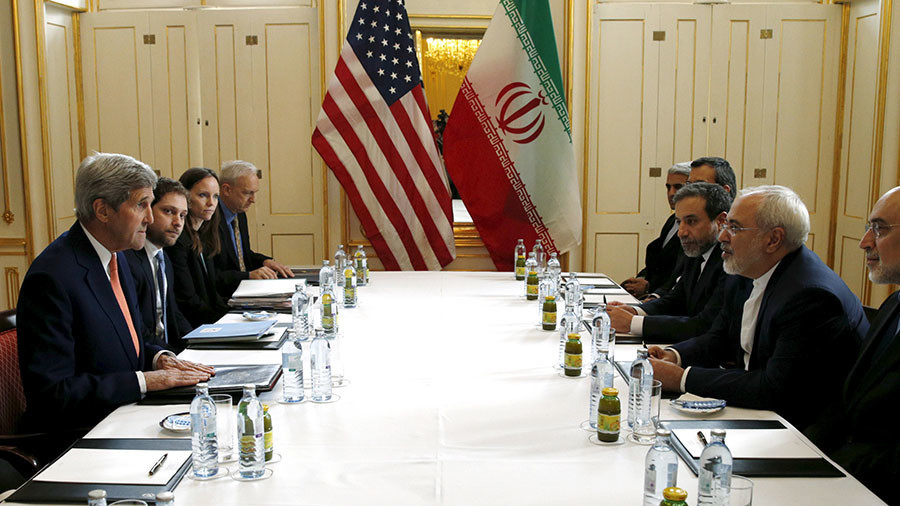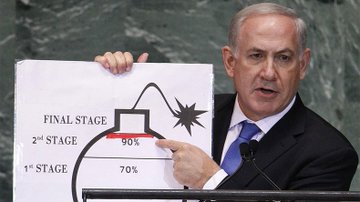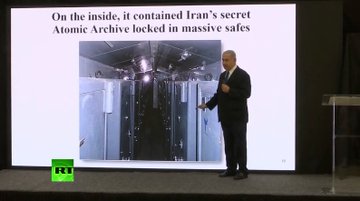The Iran nuclear deal explained

The Joint Comprehensive Plan of Action (JCPOA), better known as the Iran nuclear deal, is an agreement signed on July 14, 2015, after 20 months and six rounds of rollercoaster negotiations. The signatories are Iran and a group of nations known as the P5+1: Russia, China, the US, UK, France (all permanent UN Security Council members), and Germany. The deal aims to prevent Iran from getting a nuclear weapon by curbing its nuclear program, which dates back to the 1950s and was, ironically, set up with American help before the 1979 revolution ended most of Iran’s ties with the West.
Iran’s concessions
Under the JCPOA, Tehran gave up 98 percent of the enriched uranium it already had, and only keeps material enriched to the lowest threshold of five percent (weapons-grade uranium starts at 85 percent). Two-thirds of Iran’s enrichment centrifuges are halted, leaving only around 6,000 older models operational. Any remaining materials and facilities are to be used strictly for scientific, medical, and agricultural purposes.
Iran’s compliance is being monitored by the International Atomic Energy Agency (IAEA). The JCPOA boosts the IAEA mission in Iran from 50 to 150 experts with round-the-clock access to any nuclear-related facilities, and additionally envisions remote and satellite surveillance.
Sanctions relief
In return, Iran gets relief from a portion of economic sanctions, some of which have been in place since the Islamic Revolution of 1979.
United Nations and European Union sanctions were either suspended or lifted, and no new sanctions will be introduced as long as the JCPOA is in effect.
The US, however, never agreed to permanently lift or even suspend its own sanctions against Iran. Instead, the US president periodically reviews the deal and signs a waiver that ceases their application. Even so, this only applies to secondary sanctions, those that penalize other countries for doing business with Tehran. Those that affect American companies, as well as those related to things other than Iran’s nuclear program (like human rights) remain in place.
The US’ take on the deal
The JCPOA was signed late in Barack Obama’s second term as US president, and was seen by his supporters as one of his crowning achievements. It did, however, make a crack in his relations with Israel.
Donald Trump famously believes the Iran deal is “the worst deal ever.” He campaigned on the promise to take a tougher stance against Iran, which has been on America’s list of “state sponsors of terrorism” for nearly 35 years. Now that he is president, Trump appears to be on course to withdraw the US side of the bargain unless it gets “fixed.”
If Trump doesn’t sign the next scheduled sanctions waiver on May 12, US participation in the deal will effectively end, which would likely send the whole agreement unraveling.
The EU’s take on the deal
So far, the IAEA has repeatedly certified Iran’s full compliance with the agreement, and the European Union has deferred to its judgment. When the first signs appeared that President Trump might want to kill the deal, European signatories rose to its defense, the consensus being that it remains the best mechanism to keep tabs on Iran’s nuclear program.
With the countdown running to May 12, rhetoric from the UK, France, and Germany has shifted somewhat. They still believe the JCPOA needs to be protected, but they now want a new deal, which would also limit Iran’s ballistic missile development, somehow contain the spread of its influence in the Middle East, and provide further limits on its nuclear program past 2025, when the JCPOA term expires.
What does Israel say?
Israeli Prime Minister Benjamin Netanyahu is a big fan of show-and-tell presentations and a long-time opponent of the JCPOA. Back when it was still in the making, he claimed it was too lenient and leaves room for nuclear weapons research.
Well-timed for the looming May 12 deadline, he has rolled out “100,000 secret files,” supposedly obtained by Israeli spies, that “prove” Tehran has been developing nukes, whatever IAEA inspectors say.
Israel’s take is not only important because Tel Aviv and Tehran are arch-enemies historically, constantly hurling belligerent rhetoric at each other. It also has weight with the US; Trump has said Netanyahu’s claims are among the things that showed him he had been “100 percent right” about the Iran deal.
What does Iran say?
As the JCPOA looks set to crumble, surprisingly few of the Western signatories have actually asked for Iran’s opinion. When French President Emmanuel Macron did phone Tehran last week, his counterpart, Hassan Rouhani said the JCPOA is non-negotiable and made it clear Iran won’t accept further restrictions beyond what’s already been agreed in 2015. Both Rouhani and Foreign Minister Mohammad Javad Zarif have indicated that Iran will withdraw from the deal if US sanctions are reinstated.




0 Comments:
Post a Comment
Subscribe to Post Comments [Atom]
<< Home